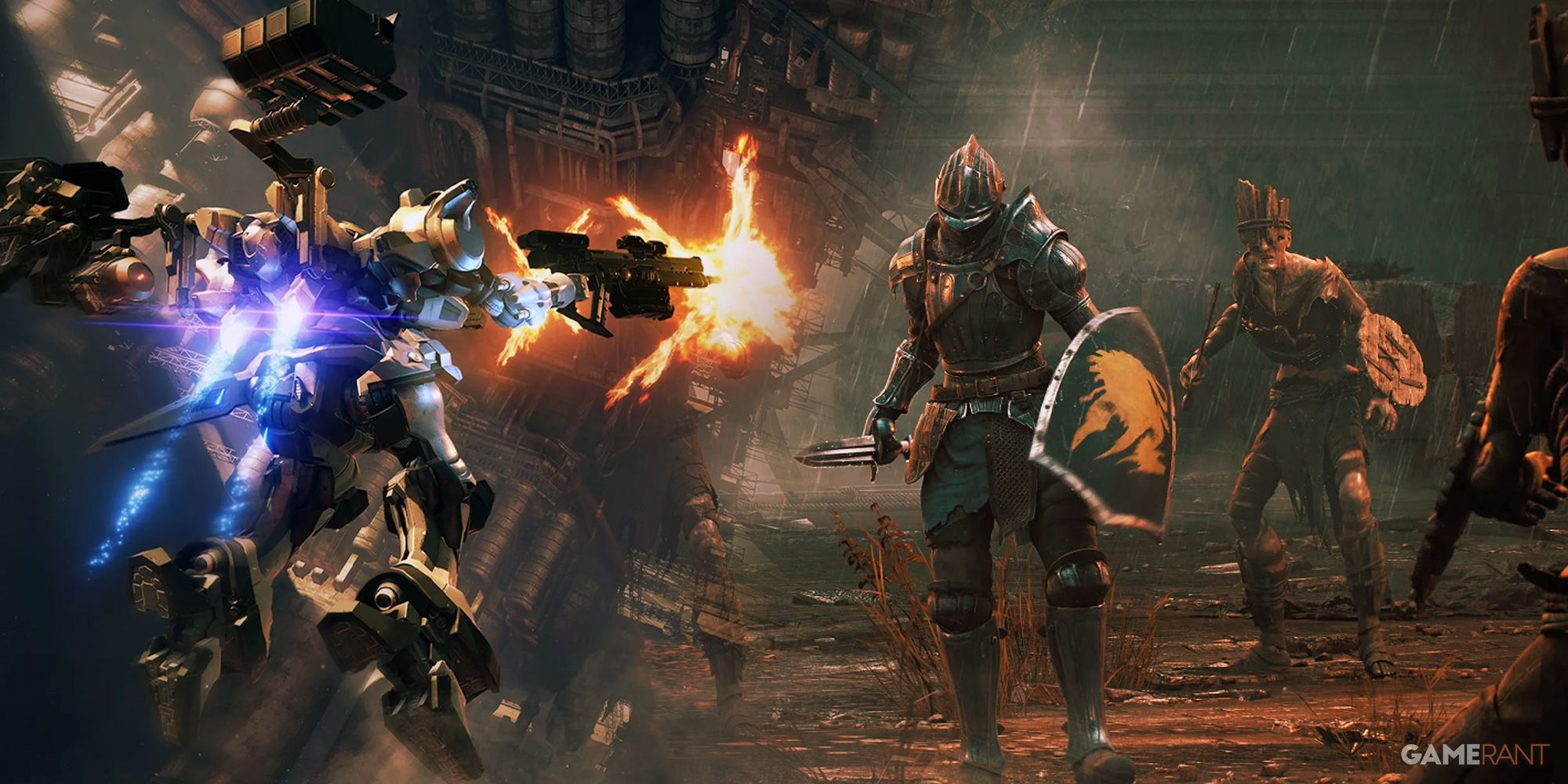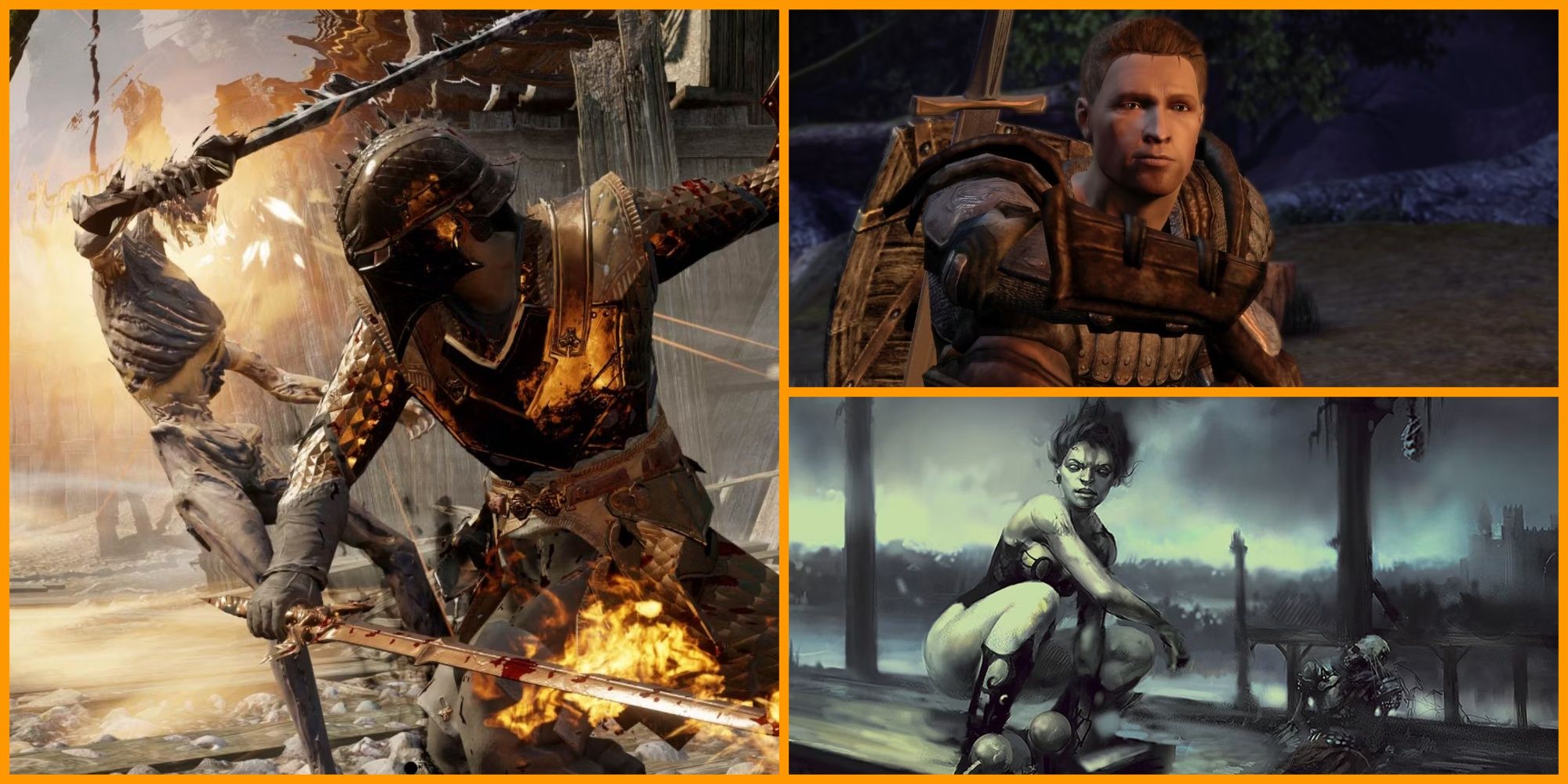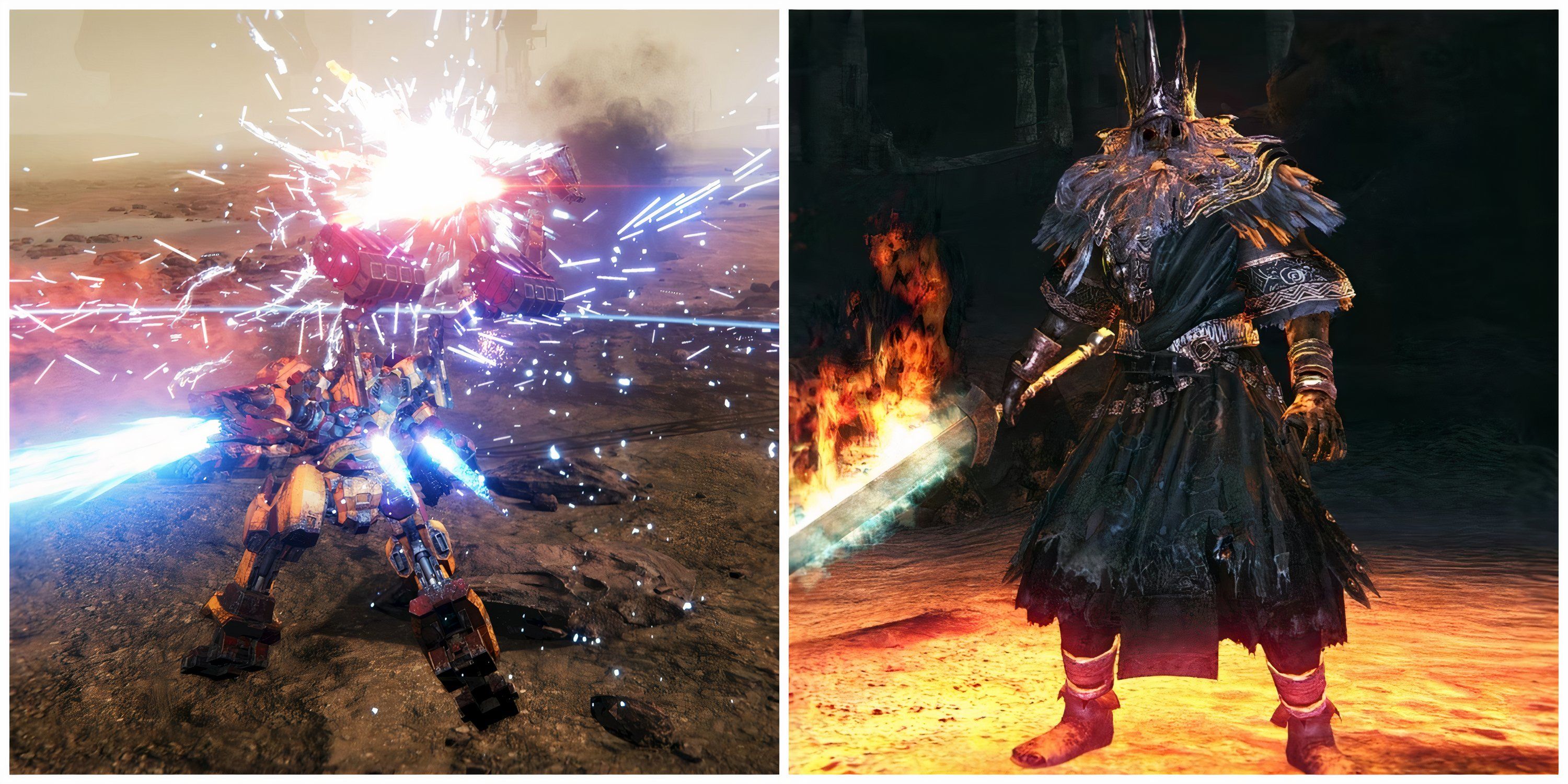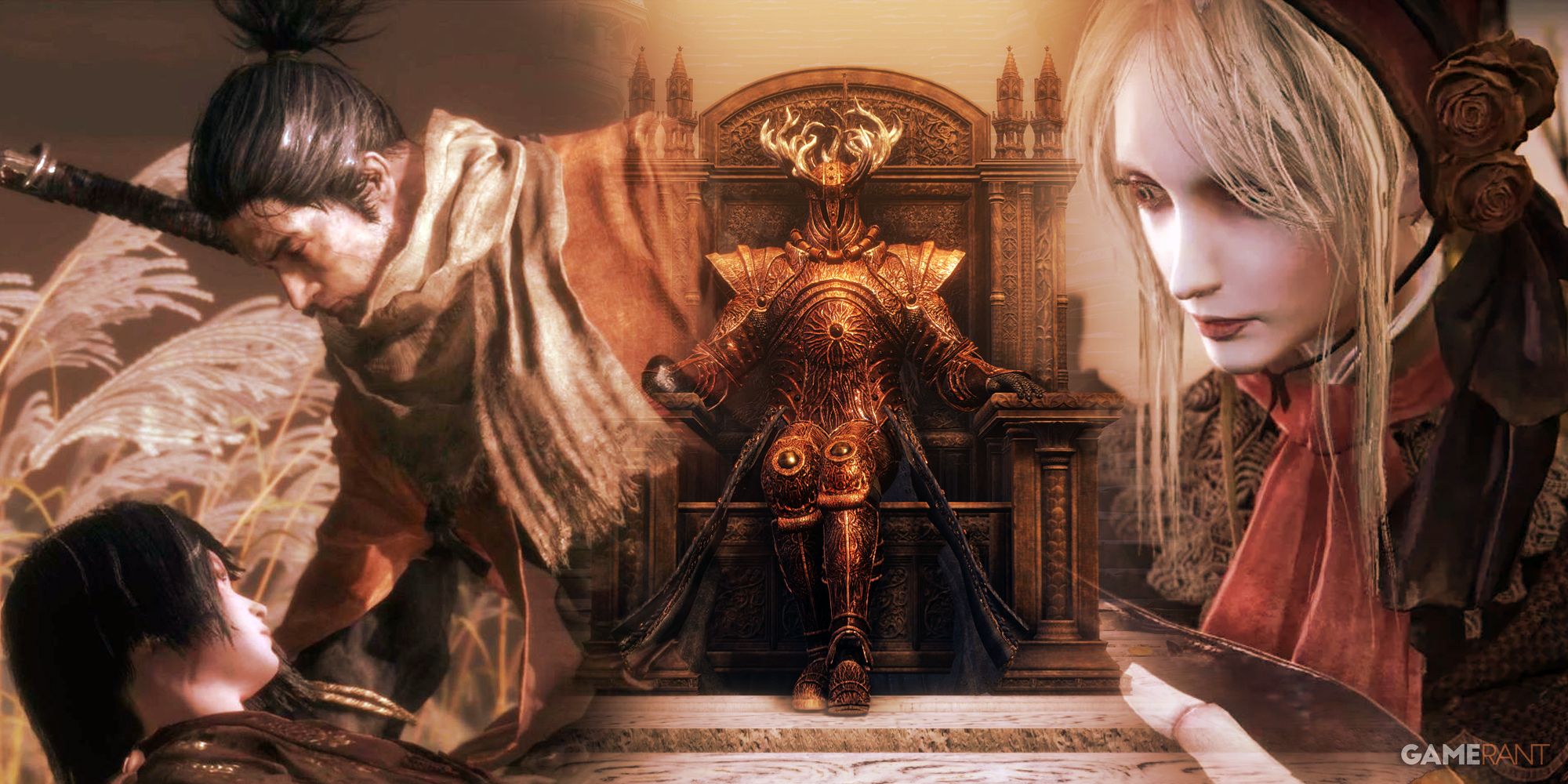FromSoftware has captivated players worldwide with their games, which have mainly garnered attention and praise for their combat systems and how challenging they are. Although the studio has also long been revered for its intricate narratives and foreboding atmospheres, it has boldly crafted some of the most unforgettable endings in gaming history. Delving into themes of choice, consequence, and existential dread, these conclusions leave an indelible mark on players long after the credits roll.

6 Underappreciated FromSoftware Franchises & Games
Beyond Elden Ring and Dark Souls, these games and franchises by FromSoftware deserve far more attention and love than they're getting.
Contrary to popular perception, FromSoftware games aren't just gauntlets of difficult, nonstop boss battles. Fans have found that they are a deep dive into narrative complexity, and the endings are not merely conclusions to the player's journey, but intellectual meditations on the human condition and the mysteries of the universe. Through their themes, these endings invite players to contemplate the nature of existence and their place within the world. As players navigate the treacherous landscapes of FromSoftware's worlds, they are reminded that, in the end, it is not the destination that matters, but the journey itself.
The endings mentioned here are not always necessarily good, but they are ranked among the best due to the interesting and profound narrative implications—or simply because they are so drastically different from the rest.
WARNING! Spoilers ahead for FromSoftware games.
5 Bloodborne
Childhood's Beginning
Bloodborne, a visceral journey into madness and despair, culminates in three endings, one of which is the haunting "Childhood's Beginning" ending. The Hunter, after defeating Gehrman, resists the influence of the Moon Presence and is then transformed into a small squid. The protagonist thereby ascends to the status of a Great One, achieving what all the antagonists of the game have tried to do, and players are left confounded by this ending.
It is the only 'good' ending for the Hunter. The player doesn't have to see the protagonist get killed, which can be anticlimactic for a game-ending, even one by FromSoftware. It is also the rarest ending and the ending in which the player has to do the most work. It is the ending that most players will choose after a first playthrough of the game, especially after they find that it lets them fight the most bosses. It is thought of as the "true" ending according to fans, as it lets them kill the real final boss—the other endings don't have a boss. The ambiguous conclusion to the story offers players a tantalizing glimpse into the lore of Bloodborne, which seems to point towards the Moon Presence behind the Plague of Beasts.
4 Dark Souls 3
End of Fire (Age of Dark)
Dark Souls 3, the conclusion to the acclaimed trilogy, grapples with themes of entropy, decay, and the cyclical nature of existence. The Fire Keeper Ending, also known as the End of Fire and the Age of Dark, offers players a poignant meditation on the inevitability of change and the futility of resisting the march of time.

8 BioWare Games With The Best Endings, Ranked
When BioWare were at their peak, storytelling was the developer's calling card, earned through a handful of shocking and moving endings.
The Ashen One must obtain the Eyes of the Fire Keeper and give them to her after killing the Soul of Cinder. After this, they both allow the First Flame to die, with the Fire Keeper absorbing it into her body. The world descends into complete darkness, thus ending the Age of Fire and beginning the Age of Dark. Alternatively, if the player wants a darker ending, they can also choose to kill the Fire Keeper in the final moments before the flame is extinguished, after which the Ashen One will offer the flame to the sun.
End of Fire is a great conclusion for Dark Souls 3, and it is rather peaceful, as fans are forced to reckon with the fundamental nature of the universe itself. It is hinted throughout the game that the flame will be rekindled again. Opting for the End of Fire brings about a sense of closure, as the flames fade and darkness envelops the world. It is a somber reflection on the transient nature of life and the cyclical nature of creation and destruction. It symbolizes acceptance, and fans should see this as a fitting conclusion to the series.
3 Elden Ring
Lord of the Frenzied Flame
Elden Ring
- Platform(s)
- PS5 , Xbox One , PS4 , Xbox Series X , Xbox Series S , PC
- Released
- February 25, 2022
- Developer(s)
- From Software
Elden Ring transports players to a world on the brink of collapse. The Lord of the Frenzied Flame ending presents players with a harrowing path. It is a difficult quest and almost impossible to activate on a normal playthrough. It implies the end of all life in The Lands Between. Those who seek the Frenzied Flame want to embrace its power and usher in an age of chaos and destruction that will devour everyone and everything.
Players may confuse this with the First Flame from Dark Souls 3, but in Elden Ring, there's no darkness, and no possibility of rebirth—just a cosmic fire that burns for all eternity. This morally complex ending challenges players to confront the consequences of their actions and the nature of power itself. The ending signifies that nothing new is growing from the Frenzied Flame. It is one of the most nihilistic endings in all the FromSoftware games. The world is beyond saving, and cannot be redeemed. By grappling with themes of sacrifice and redemption, players are forced to grapple with the complexities of their own decisions in the world around them.
When the Tarnished is about to reach the Frenzied Flame, Melina asks them to "please leave the frenzied flame alone." She begs and pleads to "deny not the lives, the new births of this world." It is a moving testament to FromSoftware's storytelling prowess. Even in the face of such monumental choices, fans debate which ending is the "best."
2 Sekiro: Shadows Die Twice
Shura Ending (Emma, Isshin Ashina)
In Sekiro: Shadows Die Twice, there are multiple endings with their own bosses and storylines. The Shura Ending represents a descent into darkness, as the protagonist forsakes honor and embraces becoming a villain by choosing to obey the Iron Code and abandoning Kuro.
The Shura ending is the fastest way to the end of the game. At the heart of this ending are the exclusive bosses of Emma, the Gentle Blade, and Isshin, pivotal figures whose fates are intertwined with the protagonist's journey. Both bosses will be wiped out at the hands of the protagonist, who then becomes "Shura" —a demi-god or anti-god who is obsessed with violence, wrath, and a hunger for fighting and death.
The Shura Ending serves as a cautionary tale, reminding players of the seductive nature of power and the consequences of unchecked ambition. This ending means that all the slaughter throughout the game was for nothing, and it simply happened because the Wolf enjoyed it. It is recommended that this ending be played after the other endings are completed because it effectively cuts off about a third of the other bosses in the game.
1 Elden Ring
The Age of the Stars
Elden Ring
- Platform(s)
- PS5 , Xbox One , PS4 , Xbox Series X , Xbox Series S , PC
- Released
- February 25, 2022
- Developer(s)
- From Software
The Age of Stars ending from Elden Ring represents a departure from the familiar themes of light and dark, offering players a glimpse into the cosmic forces that govern the universe. To achieve this ending, players must complete Ranni's questline. After defeating the Elden Beast, the Tarnished uses Ranni's summon sign. Instead of mending the Elden Ring, they help Ranni replace Marika as a God, thereby leaving The Lands Between without a lord for the first time in ages. It is the only ending in which the Tarnished is shown to be not alone, which might be reason enough for most players to pick it over the others.
While it may be a lonely, dark, and cold ending for everyone affected by Ranni's actions, the Tarnished can finally experience true freedom, without being under anyone else's thumb. This ending ushers in an era of the Dark Moon, to replace the old Greater Will. It is a transcendent experience, inviting players to think about which ending is really "good," but most will find that all answers are subjective at best.

6 Underappreciated FromSoftware Franchises & Games
Beyond Elden Ring and Dark Souls, these games and franchises by FromSoftware deserve far more attention and love than they're getting.


